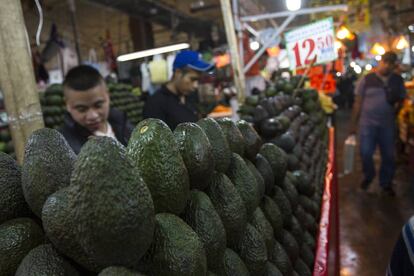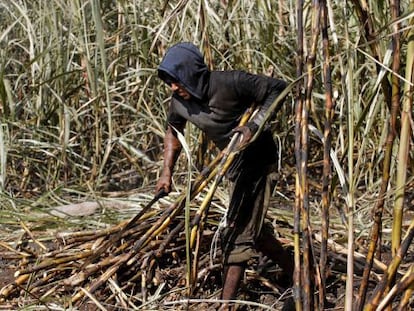Is Mexico’s avocado boom sustainable?
Country is leading global exporter, but the environmental impact is proving increasingly costly

As production of oil – once the engine of the Mexican economy – declines, and the still-thriving automotive sector comes to terms with the protectionist threats of Donald Trump, Mexico is looking to diversify its economy, with avocados playing a growing role in bolstering the country’s export sector.

This most Mexican of fruits is now the country’s second-biggest agricultural earner after the tomato, thanks to a steady increase in prices over recent years. In fact, that rise only came to a halt last year in its principal destination, the United States, where demand has more than doubled in the last 15 years, making it a feature of a growing number of people’s diet.
Six out of 10 avocados consumed in the United States now come from Mexico, prompting more and more farmers there to cultivate the crop.
Deforestation is very serious. And in some areas it is leading to water shortages Alejandro Macías of the University of Guadalajara
The US now buys 80% of Mexico’s avocado output, with sales doubling since 2010. “It is very important for us, particularly if you take into account that we have only been selling avocados to the United States for 20 years,” says Ramón Paz of the Association of Mexican Avocado Producers and Export Packers, which represents some 20,000 growers and 47 packagers. “But the United States is not our only customer. In recent years we have seen that Canada and Japan have come to play a bigger role,” he says, noting that sales have grown 320% and 100% in the two countries, respectively, in the last six years.
Paz says that Mexico’s efforts to diversify its economy in recent years will have redoubled as Trump attempts to renegotiate the North American Free Trade Agreement (NAFTA) and rattles the protectionist sword. He believes avocados will continue to play a key role in keeping export earnings up.
“We are the only country that can export all year round, thanks to high-altitude cultivation and where trees flower at least four times a year. Furthermore, eight out of 10 avocados consumed in the US come from our country. Even if they tried, they couldn’t produce enough to cover demand,” says Paz.
Mexican growers are also confident that Trump’s protectionist rhetoric will not apply to agricultural products, says Alejandro Macías, a specialist in regional economics at Mexico’s University of Guadalajara. “Trump will focus on manufacturing, not so much on the primary sector, where he has a lot to lose. What’s more, many growers in California have moved to Mexico, where they package fruit bought from local growers. They will apply pressure to prevent trade from slowing down,” he explains.
Six out of 10 avocados consumed in the United States now come from Mexico
Unlike its other major agricultural export, the tomato, Mexico enjoys a comfortable global position: one in three kilograms of avocados produced around the world come from Mexico, says the UN’s Food and Agricultural Organization. The country controls half of global avocado trade, with the Dominican Republic and Peru coming in very distant second and third place.
Macías says Mexico’s domination of the avocado market is due largely to geography: it has ideal growing conditions: “We shouldn’t forget that the fruit is native to Mexico,” he explains. And, of course, it has a neighbor with a strong appetite for the product.
Around 110,000 Mexican households depend directly or indirectly on avocado production. “It’s far and away the crop that has grown the most, also in terms of generating jobs,” says Macías, noting that in 2000, the avocado was not even on the list of Mexico’s top-10 agricultural exports. “Pretty soon it will be the first,” he predicts.
The central state of Michoacán is the center of Mexico’s avocado-growing sector, producing 85% of exports, although in recent years states such as Jalisco and Mexico have also begun growing the fruit.
But the success of avocado production in Michoacán has attracted organized crime, along with the destruction of forest to create more land for cultivation, as well as the use of more and more water. “The environmental impact is the most questionable,” says Macías, noting: “Deforestation is dramatic, very serious. And in some areas it is leading to water shortages: we are exporting virtual water to other countries,” he concludes.
English version by Nick Lyne.









































